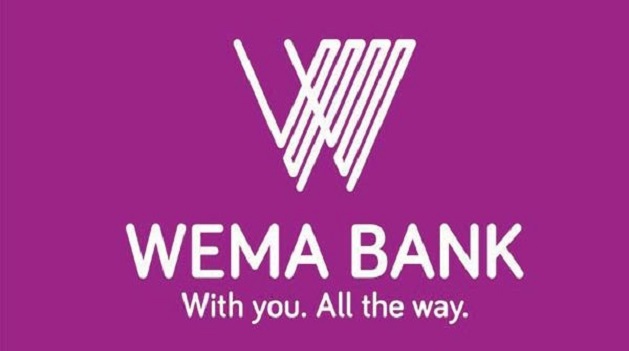General News
Software Can Generate $10b Annually if Harnessed-Obaro

John Obaro is the managing director of SystemSpecs. He has had a distinguished IT management career and is regarded as one of the most respected personalities in the Nigerian IT industry.
Under his leadership, and with a team of professionals with varied experience, SystemSpecs has attained the enviable position of Nigeria’s leading software house and aspiring to become the de-facto software institution in Africa.
Before establishing Systemspecs, Obaro worked with United Bank of Africa, International Merchant Bank (IMB) among others.
He spoke on issues around software development in the country.
Evolution of SystemSpecs In the Software Space
I left Intercontinental Merchant Bank (IMB) in 1992 as Head of Systems Department to start SystemSpecs.
This was after I led a team that implemented Nigeria’s first international banking application on a network linking Lagos and four other towns.
By this laudable feat, I helped in pioneering Nigeria’s online real-time banking at a time when most banks were still debating its feasibility.
SystemSpecs started with a foreign financial and business application called SunSystems and due to demand from our clients then, we decided to develop HumanManager, a Payroll/HR application.
As the market developed and we began to envision the emergence of e-business and e-payment space in Nigeria, we went ahead to develop and introduce Remita, a world class e-Payment application into the Nigerian market.
Remita has today been adopted by all Nigerian banks and is used for the payment of all Federal Government contractors and employees under the Central Bank of Nigeria’s e-payment initiative.
Attaining leadership requires foresight, creativity, innovation, focus, excellence, discipline, hard work, resilience, patience and consistency; these are necessary roads that any successful entrepreneur must travel and we give God the glory for where we are today.
SystemSpecs is strictly a software company with focus on e-payments, financial and human resource management applications.
Challenges of Nigerian Software Industry
Nigeria, like most African countries that are in the developing nation’s league is predominantly plagued with “information poverty”.
Data is such a hard thing to find in Nigeria, so people just make up the numbers and the man that can shout the loudest gets the most attention. Unfortunately, you don’t really need to shout to win an argument if you have verifiable facts.
Today, no one can estimate the country’s earnings from software exports as they would for cocoa or oil export.
According to National Office for Technology Acquisition and Promotion (NOTAP), the country loses over $1billion annually to software importation simply because most Nigerian companies prefer to import foreign off-the-shelves software to meet local needs where indigenous software could have provided better solutions.
Any software that comes from abroad was built mainly for that environment and anyone who uses it here is just a secondary user.
This has further thinned the potential of the Nigerian software market which by now should be in excess of probably $10billion annually if well harnessed.
There are some people who don’t believe in themselves, therefore, they cannot even believein their immediate environment.
Their belief is that something must come only from the western world for it to be good. I put that to ignorance.
However, this is not to say that I am not mindful of some challenges with a few locally developed software such as low quality assurance, non-scalability, improper documentation and packaging among myriads of other issues. If we don’t deliberately share success stories, no one will believe the indigenous software space is really worth the effort.
SystemSpecs’ Critical Success Factors
We have done a lot with the Remita integrated solution. You can’t get that anywhere in the world because they, for instance, do not have “ghost worker” challenges.
So, I will say it is high time government further encouraged the use and adoption of indigenous software in the country. I think with the right policies and awareness, indigenous software will blossom in the country.
Trends & Opportunities in the Nigerian Software Industry
Today, we live in a world that is driven by information technology and the software industry which has been a source of galloping income for some countries is at the driver’s seat.
A faster and more powerful economic and technological development has taken off in Africa and the Nigerian Software industry is likely going to easily become the most significant regional player going by current developments in the country.
There are so many opportunities for the software industry in a developing economy like Nigeria given the low capital entry requirements as well as the industry’s high value, high growth, high technology and knowledge-rich profile of software activities.
It is apparent that the industry requires skilled manpower but few raw materials which are not in any way damaging to the environment.
There is a big opportunity to remake the software space because of the fundamental shift of the software business focus from just the corporate market to the consumer experience.
The need to bring the consumer experience into the development and use of software is good ground for easy harvests.
There should be sufficient home-grown software that can handle the day-to-day lifestyle of the Nigerian people.
The major requirement for the software industry is human capital and with the country’s size and abundant supply of low cost software engineers or graduates, majority of whom are self-taught, the country stands a chance to provide highly skilled professionals with absolute wage comparative advantage in the international software market.
Nigerians are beginning to realize the importance of software for day-to-day activities and have therefore began to invest in this sector, although the rate at which the industry is growing is still at a very slow pace.
Cloud computing and mobile applications are also new trends in software development. In these areas there are so many opportunities for developers who know and understand these technologies.
Opportunities for Upcoming Software Developers
Software development is an art. You must develop some kind of stronginterest in it for you to succeed.
Apart from updating your knowledge and skills through training on new technologies, you must be focused and patient.
There are lots of institutions with the right development programmes springing up to help interested persons in software engineering and related fields. So get up and get trained!
Whether as an employee or a self-starter, you will require mentorship for product and industry understanding.
Mentoring helps you to gain good momentum and quickly exit when your venture is not likely to succeed.
Like I said earlier, you really have to be creative to succeed in the software industry. It may already be too late trying to develop a banking application in Nigeria right now because we have lost that to the foreign players but when you understand what banking means to you as an individual you can develop software around it to address specific unmet or undiscovered needs.
This is why the mobile money application was so successful in Kenya unlike Europe where there are so many banks with several transaction platforms.
To become a successful entrepreneur you must also develop certain skills in management, marketing and human relations.
Launching Pads for Entrepreneurs
Do not make money your goal, make the delivery of quality software your goal and remember this may take some time, and then money will come.
Be patient. A lot of software companies that will stand the test of time do take a long time to build.
You may need to learn three vocabularies; “Partnership, Collaboration and Team execution”. Even marathon races have support.
This is one of the ways you can create safety net for yourself and mitigate the risk of wearing out during the software development phase as a self-starter especially knowing fully well that there are some heavyweights in the industry lurking around to offer you jobs rather than partnerships as a small developer.
Don’t be afraid to make mistakes but don’t make the same mistake twice. Be ready to fail. Unfortunately, today there is the stigmatization of failure in our environment.
The whole idea about success without failure is really funny.
The Remita product that the whole nation boasts of today was a product of a failed bid! Be creative and resilient in the execution of your business plan and it’s not just about business plans but the thinking behind the assumptions of your business plan that matters.
Be professional in managing people and finances and go to school to learn same if need be.
If you happen to require loans, seek help first from informal sources. If your friends and family have not invested in you, why should someone else?
You must develop a thick skin especially to survive the Nigerian business terrain and by this I mean a strong staying power; the ability to stay focused on what you believe to be a solution that can sell.
Understand the intellectual property laws and rights, and don’t be in a hurry to give out your code without protection. It could be costly.
Prospective Entrants into the Software Industry
Software industry is such an amazing one because of its potential for the economy of individuals and nations. India today makes more money from software than Nigeria makes from oil.
The richest companies in the world today are in the computer industry.
Records have it that half of the ten richest men in the United States made their money from software-related businesses.
However, more than making the money is the fulfillment of helping to solve daily life’s problems for people.
If you must enter the industry as an employee or entrepreneur, I will leave you with three words and they are “innovation, innovation, and innovation”.
Innovation is apt in designs and architecture, in business models, and in monetizing your solutions using cost effective solutions distribution mechanism.
General News
FG to Launch Fully Digital Expatriate Residence Permit Application Portal August 1

The Nigeria Immigration Service (NIS) has announced the rollout of a fully digital application system for the Combined Expatriate Residence Permit and Aliens Card (CERPAC).

The new online portal, https://cerpac.immigration.gov.ng, will become the exclusive platform for submitting CERPAC applications from August 1, 2025.
According to NIS, the digital migration is part of the Federal Government’s broader initiative to reform the immigration system by promoting transparency, improving operational efficiency, and enhancing the overall user experience for expatriates and organizations interacting with the Service.
In a press statement signed by A.S Akinlabi, Service Public Relations Officer, the NIS disclosed that manual or physical CERPAC forms will be completely phased out by July 31, 2025.
It noted that after this date, all applications must be submitted exclusively through the online portal.
The Service has advised applicants who have paid for physical forms but are yet to complete the submission process to do so on or before July 31, 2025, warning that any unsubmitted applications after the deadline will be deemed invalid, and associated payments may be forfeited.
Companies and individuals assuming Immigration Responsibility (IR) for expatriates have also been urged to ensure that all outstanding applications are finalized within the stipulated timeframe, to avoid potential delays or administrative setbacks.
“This digital transition marks a critical milestone in our effort to simplify processes and serve the public better,” the statement reads.
The NIS urged members of the public to direct all inquiries and correspondence regarding the new digital process to the office of the Public Relations Officer at the Service Headquarters in Abuja.
General News
Moniepoint Named Among World’s Top Fintechs by CNBC


Tosin Eniolorunda and Felix Ike
Moniepoint joins a select group of leading fintech players recognised for their financial performance and success across 2023-4. The list – compiled by CNBC in conjunction with market research firm Statista – follows analysis of key performance indicators, such as revenue growth, transaction volume, employee headcount, and capital raised. The result is a diverse group of 250 trailblazing fintech companies.
Founded in 2015 by Tosin Eniolorunda and Felix Ike, Moniepoint (formerly known as TeamApt Inc.) has been instrumental in advancing financial inclusion across Africa – especially for individuals and businesses operating in the informal economy, underserved by formal and traditional institutions.
The Company services 10 million+ customers through its comprehensive, integrated ecosystem of digital banking, credit, payments, and business management tools, and processes over one billion transactions monthly with volumes exceeding US$22 billion.
The accolade follows recent milestones for the Company which reiterate Moniepoint’s commitment to innovation and widening access to the formal financial system.
Notably, Moniepoint expanded its offering to Africans in the international diaspora via the launch of the MonieWorld platform. MonieWorld offers seamless remittance and digital financial services capabilities to individuals in markets such as the UK; the first time the Company has provided services to consumers outside Africa.
In June, Moniepoint was named in the TIME100 Most Influential Companies list for 2025, highlighting the Company’s extraordinary impact. Moniepoint has also been recognised by the Financial Times for three consecutive years as one of Africa’s fastest-growing companies, reflecting its remarkable revenue growth and business expansion; and by CB Insights in the Fintech 100 list, highlighting the Company’s status as one of the world’s most promising private fintech companies.
Tosin Eniolorunda, Group CEO of Moniepoint Inc., said: “It is an honour to be named as one of the world’s top fintech companies by CNBC. Moniepoint’s inclusion in this prestigious, authoritative list is testament to the hard-work and success of the entire team while highlighting our emergence as a key player shaping the future of fintech worldwide.
“Our mission to power the dreams of millions of African entrepreneurs and businesses continues to propel us forward with renewed vigor. As we continue to scale, we remain committed to driving global financial inclusion and widening access to economic opportunities for Africans everywhere – transforming lives and livelihoods.”
CNBC’s list of the world’s top fintech companies was launched in 2023 to identify global market leaders in technology-driven financial services. The list, which includes companies operating across various regions and market categories including banking solutions, digital assets, and payments, highlights the dynamic and rapidly evolving FinTech industry, offering readers, investors, and stakeholders a comprehensive overview of the leading players across various segments.
General News
Wema Bank Plans N2M Grant to Empower Women

Innovative financial institution and pioneer of Africa’s first fully digital bank, Wema Bank, has reaffirmed its commitment to advancing women’s empowerment by partnering with the SheCan Conference for the fifth consecutive year.

The collaboration has announced it would empower women with N2 million grant during the 6th edition of SheCan 6.0. conference, that will be held on July 18, 2025, at Balmoral, Federal Palace Hotel, Lagos.
The event is expected to host over 7,000 women under the theme “SheCan Do More.”
Announcing this partnership, Wema Bank through its women-focused platform, SARA by Wema, said it will be awarding ₦2 million in business grants to support women entrepreneurs within the SARA Community.
This grant is to support small and medium businesses within the SARA Community to scale up their business.
Ayodele Olojede, Head, Retail and SME Banking at Wema Bank, said, “Wema Bank is committed to empowering women entrepreneurs by providing the financial backing, tools, training, and networks they need to scale sustainably. Year after year, we’ve seen the incredible ripple effect that access, and opportunity can create in the lives of women and their communities.
“Through SARA by Wema, our goal is to create an environment where Nigerian women can dream bigger, build stronger, and lead the economy with confidence. This partnership with SheCan is a statement of belief in the power of women to transform society.”
“This year’s partnership represents more than sponsorship; it is a tangible investment in helping Nigerian women build sustainable businesses, scale their impact, and contribute meaningfully to economic growth.
“Eligible applicants must be women-led businesses with active Wema Bank accounts and must be registered members of the SARA Community.
“Interested participants are required to submit a written pitch of no more than two pages, detailing their business and founder story, the problem being solved, target audience and competitive advantage, proposed use of the grant, and the expected outcomes and community impact. Entries must also include the applicant’s Wema Bank account number, full name, and the email address used to join the SARA Community.”

 Telecom3 days ago
Telecom3 days agoNCC Introduces N10m Licence Fee for Bulk SMS Service

 Telecom3 days ago
Telecom3 days agoMTN Nigeria Targets $1Bn Cloud Market with Largest Modular Data Centre

 General News3 days ago
General News3 days agoWoodhall Capital and Partners Launch ₦1.5Bn Fund

 E-Business3 days ago
E-Business3 days agoFirm Highlights Top Risks of Quantum Computing

 E-Financial2 days ago
E-Financial2 days agoZenith Banks Leads as 8 Banks Suffer N156Bn Impairment Charges

 General News3 days ago
General News3 days agoBurna Boy Distances Himself from Meme Coin, Labels Crypto as Fraud

 Telecom3 days ago
Telecom3 days agoPAT Taps Osi as CEO

 E-Financial3 days ago
E-Financial3 days agoAfrica Launches PAPSSCARD, First Pan-African Card Scheme


























